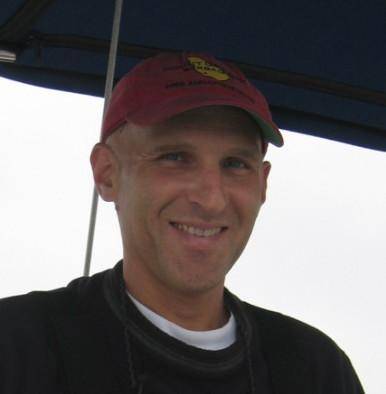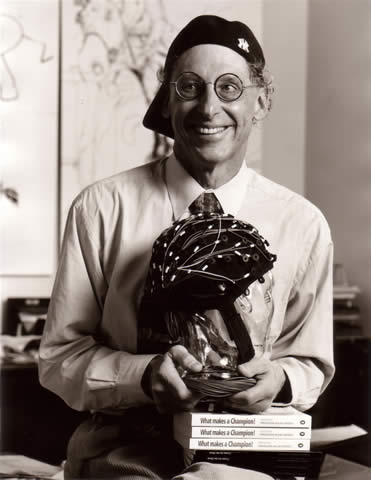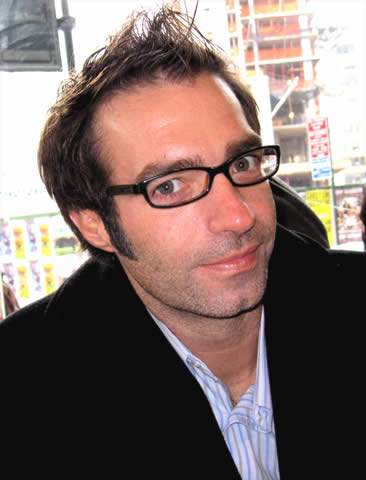|
TOWARD A SCIENCE OF CONSCIOUSNESS 2011 STOCKHOLM MAY 1-8, 2011 AULA MAGNA HALL
PLENARY 4 Wednesday, May 4, 2011 8:30 am to 10:40 am
ERIC WASSERMANN, NIH, Transcranial Stimulation and Consciousness ALLAN SNYDER, Sydney, Accessing Information Normally Beyond Conscious Awareness by Non-Invasive Brain Stimulation
ERIC WASSERMANN ALLAN SNYDER WILLIAM J. TYLER N.I.H. Sydney Virginia Tech Carilion Research Institute Eric Wassermann is a neurologist specializing in neurobehavioral disorders, with a background in clinical neurophysiology. His education and training includes Swarthmore College, the University of Pennsylvania, New York Medical College, the Boston City Hospital, and the National Institute of Neurological Disorders and Stroke (fellowship in Human Motor Control). He currently heads the NINDS Brain Stimulation Unit and is acting head of the Cognitive Neuroscience Section. After early work on self-stimulation reward in rats and a hiatus for clinical traning, he restarted his research career in the physiology of the human corticospinal system and then migrated rostrally, as his interests took led him to the control and selection of action and frontal lobe disorders. Along the way, he became a leading authority on transcranial stimulation and neuromodulation techniques and was closely involved in the initial trials of TMS in depression. Having come full circle, Dr. Wassermann's current experimental program concentrates on the role of the human reward system modulating activity in the motor cortex and related cortical areas, and the effect of reward pathway lesions on procedural and explicit learning, fatigue and motivation. Other interests include the development of new techniques for accelerating neuroplasticity and learning. His clinical research is mainly in the area of traumatic brain injury with a concentration on military populations. He holds the rank of Captain (O-6) in the US Public Health Service and serves as a government subject matter expert on medical countermeasures for chemical terrorism. He spends about 60 days a year racing and cruising under sail with family and friends. Allan Snyder is recognised for discoveries in biology, communications, optical physics and neuroscience. He received the world's "foremost prize in communication and information technology", the Marconi International Prize, in 2001. He is a Fellow of the Royal Society of London and the recipient of its 2001 Clifford Paterson Prize for "contributions which benefit mankind." He was awarded the International Australia Prize by the Prime Minister of Australia. His discoveries in brain science are hailed in the journal Nature as "breaking a 19th century mindset", while his advances in physics are described in Science magazine as a "giant step forward". His intriguing hypothesis that everyone possesses the extraordinary skills of savants, is declared "startling" by Nature, "a breakthrough that could lead to a revolution in the way we understand… the functioning of the human brain" by the New York Times, "brave and original" in a New Scientist cover story, and is featured in The Times of London, the BBC, CNN, and Barbara Walters ABC 20/20. Allan holds the 150th Anniversary Chair of Science and the Mind at the University of Sydney. Previously he was a Guggenheim Fellow at Yale University's School of Medicine and a Royal Society Research Fellow at the Physiology Laboratories of Cambridge University. He is a graduate of Harvard University, Massachusetts Institute of Technology and University College London. Dr. Snyder is also the creator of the What Makes a Champion? forum, an official Olympic cultural event held at the Sydney 2000, Beijing 2008 and forthcoming London 2012 Olympic Games, where the topic will be the neuroscience of championship. Dr. Snyder is Founder & Director, Centre for the Mind at the University of Sydney. William J. Tyler, Virginia Tech Carilion Research Institute, School of Biomedical Engineering and Sciences He received his B.S. and Ph.D. from the University of Alabama at Birmingham before conducting his postdoctoral fellowship at Harvard University. Dr. Tyler utilizes cutting-edge technology to investigate a wide range of problems in modern neuroscience and has made leading contributions to our understanding of synaptic transmission and brain plasticity underlying sensory encoding and cognitive processes, such as learning and memory. Most recently, he developed novel methods for the noninvasive remote stimulation of brain circuits using transcranial pulsed ultrasound. This ultrasonic neuromodulation (UNMOD) technology will have a major impact on emerging brain stimulation markets including for therapeutic applications to treat brain diseases and for research applications to elucidate brain function. To this end, Dr. Tyler co-founded SynSonix, Inc. and currently serves as its President while spearheading efforts to translate UNMOD from bench-to-bedside. Dr. Tyler's neurotechnology research on the development of UNMOD is funded by the U.S. Army Research, Development and Engineering Command (RDECOM) and a Defense Advanced Research Projects Agency (DARPA) Young Faculty Award. He recently served as an Assistant Professor of Neurobiology and Bioimaging at Arizona State University.
|
|
|||||||||||||



